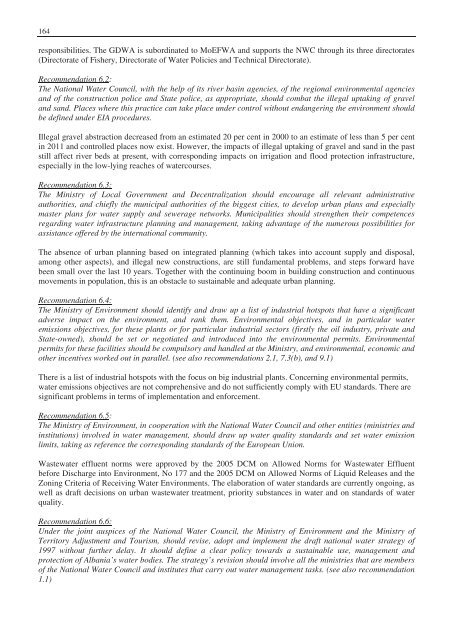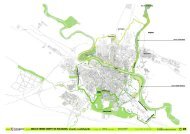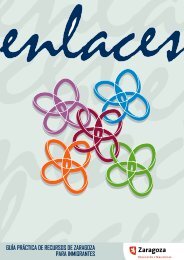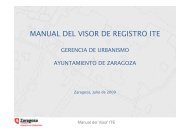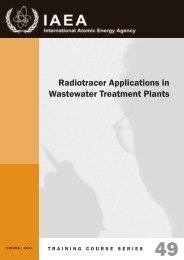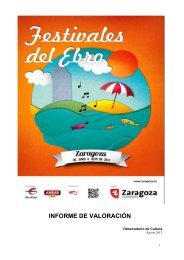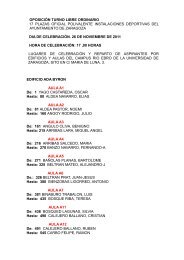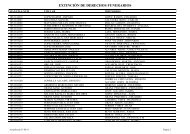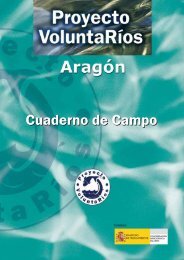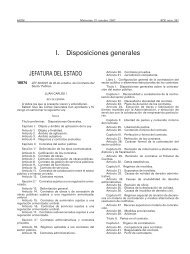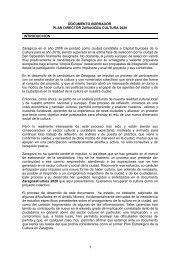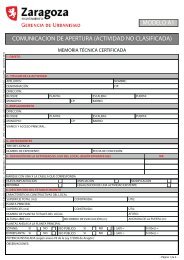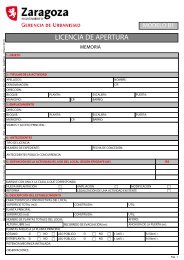Second Environmental Performance Review of Albania
Second Environmental Performance Review of Albania
Second Environmental Performance Review of Albania
You also want an ePaper? Increase the reach of your titles
YUMPU automatically turns print PDFs into web optimized ePapers that Google loves.
164responsibilities. The GDWA is subordinated to MoEFWA and supports the NWC through its three directorates(Directorate <strong>of</strong> Fishery, Directorate <strong>of</strong> Water Policies and Technical Directorate).Recommendation 6.2:The National Water Council, with the help <strong>of</strong> its river basin agencies, <strong>of</strong> the regional environmental agenciesand <strong>of</strong> the construction police and State police, as appropriate, should combat the illegal uptaking <strong>of</strong> graveland sand. Places where this practice can take place under control without endangering the environment shouldbe defined under EIA procedures.Illegal gravel abstraction decreased from an estimated 20 per cent in 2000 to an estimate <strong>of</strong> less than 5 per centin 2011 and controlled places now exist. However, the impacts <strong>of</strong> illegal uptaking <strong>of</strong> gravel and sand in the paststill affect river beds at present, with corresponding impacts on irrigation and flood protection infrastructure,especially in the low-lying reaches <strong>of</strong> watercourses.Recommendation 6.3:The Ministry <strong>of</strong> Local Government and Decentralization should encourage all relevant administrativeauthorities, and chiefly the municipal authorities <strong>of</strong> the biggest cities, to develop urban plans and especiallymaster plans for water supply and sewerage networks. Municipalities should strengthen their competencesregarding water infrastructure planning and management, taking advantage <strong>of</strong> the numerous possibilities forassistance <strong>of</strong>fered by the international community.The absence <strong>of</strong> urban planning based on integrated planning (which takes into account supply and disposal,among other aspects), and illegal new constructions, are still fundamental problems, and steps forward havebeen small over the last 10 years. Together with the continuing boom in building construction and continuousmovements in population, this is an obstacle to sustainable and adequate urban planning.Recommendation 6.4:The Ministry <strong>of</strong> Environment should identify and draw up a list <strong>of</strong> industrial hotspots that have a significantadverse impact on the environment, and rank them. <strong>Environmental</strong> objectives, and in particular wateremissions objectives, for these plants or for particular industrial sectors (firstly the oil industry, private andState-owned), should be set or negotiated and introduced into the environmental permits. <strong>Environmental</strong>permits for these facilities should be compulsory and handled at the Ministry, and environmental, economic andother incentives worked out in parallel. (see also recommendations 2.1, 7.3(b), and 9.1)There is a list <strong>of</strong> industrial hotspots with the focus on big industrial plants. Concerning environmental permits,water emissions objectives are not comprehensive and do not sufficiently comply with EU standards. There aresignificant problems in terms <strong>of</strong> implementation and enforcement.Recommendation 6.5:The Ministry <strong>of</strong> Environment, in cooperation with the National Water Council and other entities (ministries andinstitutions) involved in water management, should draw up water quality standards and set water emissionlimits, taking as reference the corresponding standards <strong>of</strong> the European Union.Wastewater effluent norms were approved by the 2005 DCM on Allowed Norms for Wastewater Effluentbefore Discharge into Environment, No 177 and the 2005 DCM on Allowed Norms <strong>of</strong> Liquid Releases and theZoning Criteria <strong>of</strong> Receiving Water Environments. The elaboration <strong>of</strong> water standards are currently ongoing, aswell as draft decisions on urban wastewater treatment, priority substances in water and on standards <strong>of</strong> waterquality.Recommendation 6.6:Under the joint auspices <strong>of</strong> the National Water Council, the Ministry <strong>of</strong> Environment and the Ministry <strong>of</strong>Territory Adjustment and Tourism, should revise, adopt and implement the draft national water strategy <strong>of</strong>1997 without further delay. It should define a clear policy towards a sustainable use, management andprotection <strong>of</strong> <strong>Albania</strong>’s water bodies. The strategy’s revision should involve all the ministries that are members<strong>of</strong> the National Water Council and institutes that carry out water management tasks. (see also recommendation1.1)


